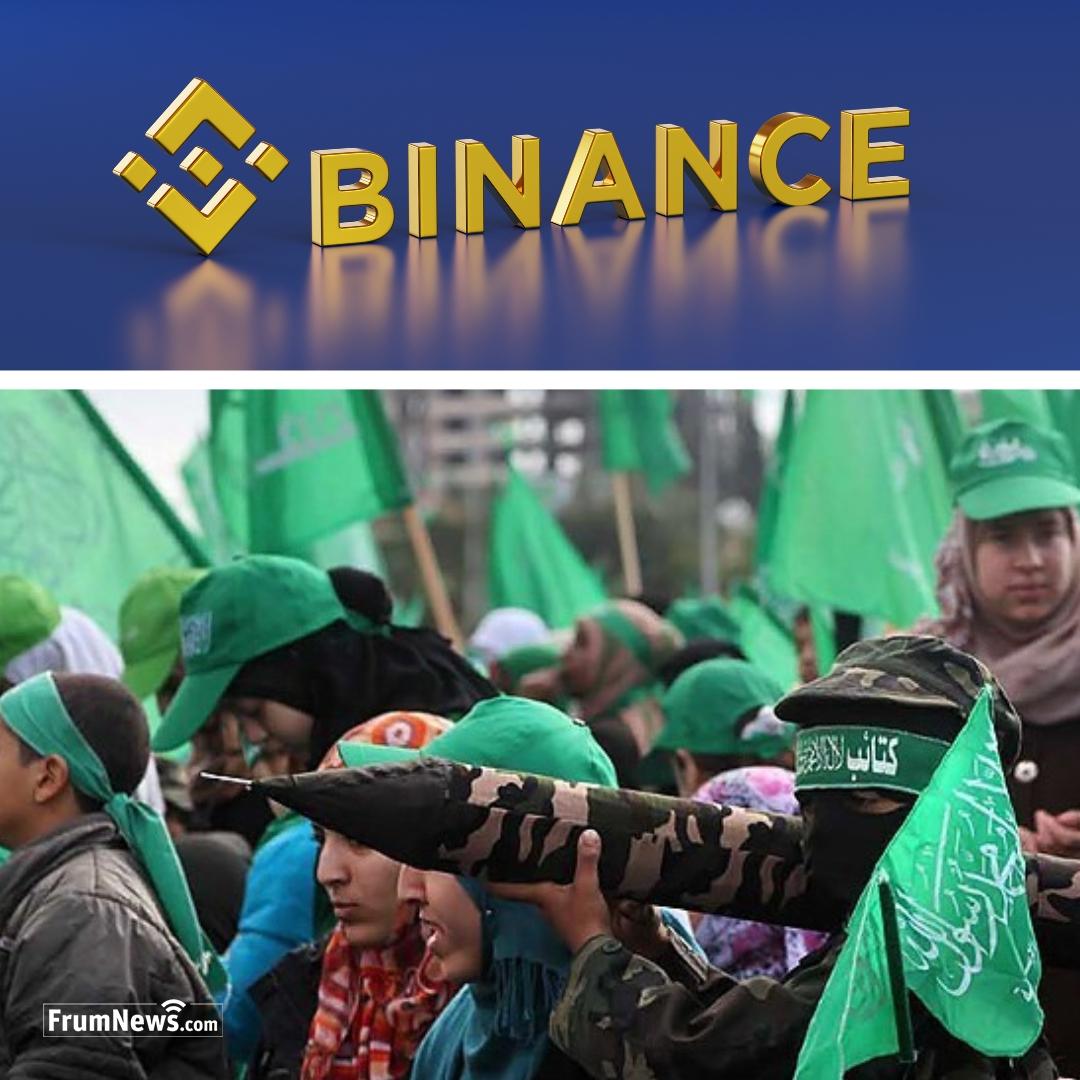CRYPTO TERROR: Oct. 7 Victims Allege Binance Helped Fund Hamas, Hezbollah in New Lawsuit

The October 7 Victims filed a lawsuit in federal court against Binance, a cryptocurrency exchange, and its co-founder, Changpeng Zhao.
By FrumNews.com
Chicago — The Victims of the Hamas-led massacres of October 7th that caused the war in Gaza filed a lawsuit in federal court against Binance, a cryptocurrency exchange, and its co-founder, Changpeng Zhao (who was recently pardoned by President Trump in October).
The lawsuit accuses Binance and Zhao of facilitating over $1 billion in cryptocurrency transfers to Hamas, Hezbollah, the IRGC, and other designated terrorist groups—including $50 million after the attack.
The plaintiffs include 306 American victims of Hamas’ massacre, including relatives of people killed, injured, or taken hostage, and subsequent attacks by Hamas, and are seeking compensatory and triple damages, among other remedies.
The Allegations
“For years, Defendants knowingly, willfully, and systematically assisted Hamas, the IRGC, Hezbollah, PIJ, and other terrorist groups to transfer and conceal the equivalent of hundreds of millions of U.S. dollars through the Binance platform in support of their terrorist activities,” the suit alleges. “This assistance directly and materially contributed to the October 7 Attacks and to subsequent terrorist attacks perpetrated by Hamas, Hezbollah, and PIJ.”
If these allegations are substantiated, Binance would face serious legal repercussions. U.S. law considers it a federal crime, punishable by severe penalties, to knowingly provide financial services to the designated Foreign Terrorist Organizations (FTOs). As these terror networks were classified as FTOs and sanctioned for many years before October 7th, they “have increasingly turned to cryptocurrencies as a new means of moving money covertly.”
“Binance not only knowingly provided financial services to Hamas—it actively tried to shield its Hamas customers and their funds from scrutiny by U.S. regulators or law enforcement—a practice that continues to this day,” the complaint alleges.
The plaintiffs claim the world’s largest crypto exchange—which, due to claiming it was beyond the reach of regulators—deliberately and knowingly failed to monitor inbound funds and allowed users to shift assets between accounts to evade seizure orders.
“Binance ensured that terrorists and other criminals could deposit and shuffle enormous sums on the exchange with impunity,” the complaint said. “Binance intentionally structured itself as a refuge for illicit activity. To this day, there is no indication that Binance has meaningfully altered its core business model.”
“As part of these resolutions, Binance admitted that for years it effectively invited terrorists and other illicit actors to transact on its exchange by intentionally evading U.S. laws that require measures to identify, monitor, report, and prevent terrorism financing.”
Where did the funds go?
The lawsuit alleges that terror funders used Binance to fund terror:
- “BuyCash. A Gaza-based money-services entity that raises funds for Hamas (and which was designated by the U.S. Department of Treasury in October 2023 as a Specially Designated Global Terrorist (“SDGT”) for materially assisting Hamas). Binance facilitated cryptocurrency transactions worth at least $240 million U.S. dollars between BuyCash and Binance in the years leading up to October 7, 2023, and cryptocurrency transactions worth at least $1.3 million dollars since that date.
- “Dubai Company for Exchange (“Dubai Co.”). A Gaza-based exchange house designated by the State of Israel as a terrorist organization because it sent tens of millions of dollars annually to Hamas’s Qassam Brigades. Binance facilitated cryptocurrency transactions worth at least $22 million U.S. dollars between Dubai Co. and Binance accounts in the years leading up to October 7, 2023, and cryptocurrency transactions worth at least $26 million U.S. dollars since that date.
- “Al-Markaziya f/k/a Al-Mutahadun for Exchange. A Gaza-based money laundering network operated by Zuhair Shamlakh and his brothers that was designated by the U.S. Department of the Treasury as an SDGT because it became “the main end point for funds transferred from the IRGC-QF to Hamas and PIJ in Gaza.”
- “Tawfiq Muhammad Sa’id al-Law. A Syrian national who was designated by the U.S. Department of the Treasury as an SDGT because he “provided Hizballah with digital wallets to receive funds from IRGC-QF commodity sales,” and “conducted cryptocurrency transfers for sanctioned Hizballah officials.” The Israeli government seized cryptocurrency wallets controlled by al-Law on the grounds that his “terrorist infrastructure belonging to Hezbollah and the Iranian Quds Force . . . operated to transfer funds through digital currencies for Quds Force and Hezbollah.” Cryptocurrency addresses controlled by al-Law and/or Hezbollah transferred the equivalent of over $400 million to Binance accounts between 2021 and 2003 and received over $190 million during the same period.
- “Alireza Derakhshan and Arash Estaki Alivand – Iranian money launderers designated by the U.S. Department of the Treasury as SDGTs for purchasing over $100 million [in] U.S. dollars in cryptocurrency between 2023 and 2025 for the benefit of the IRGC-Qods Force and Iran’s Ministry of Defense and Armed Forces Logistics. Alivand and Derakhshan transferred the equivalent of over $30 million in cryptocurrency transactions by and through Binance, which operated as a bridge to Hezbollah’s gold smuggling operations in the Tri-Border area in South America.”
“The Gaza Brokers are, in turn, [are] part of a larger IRGC financial ecosystem that includes Tawfiq Muhammad Sa’id al-Law’s IRGC-Hezbollah network, Alireza Derakhshan and Arash Estaki Alivand’s IRGC network, the Sa’id al-Jamal Network that all funds Hezbollah, Hamas and PIJ (all proxy groups that belong to what Iran has termed the “Axis of Resistance”).”
You can read the court filing here
Read Next trending_flat
 News
News





Post the first comment!